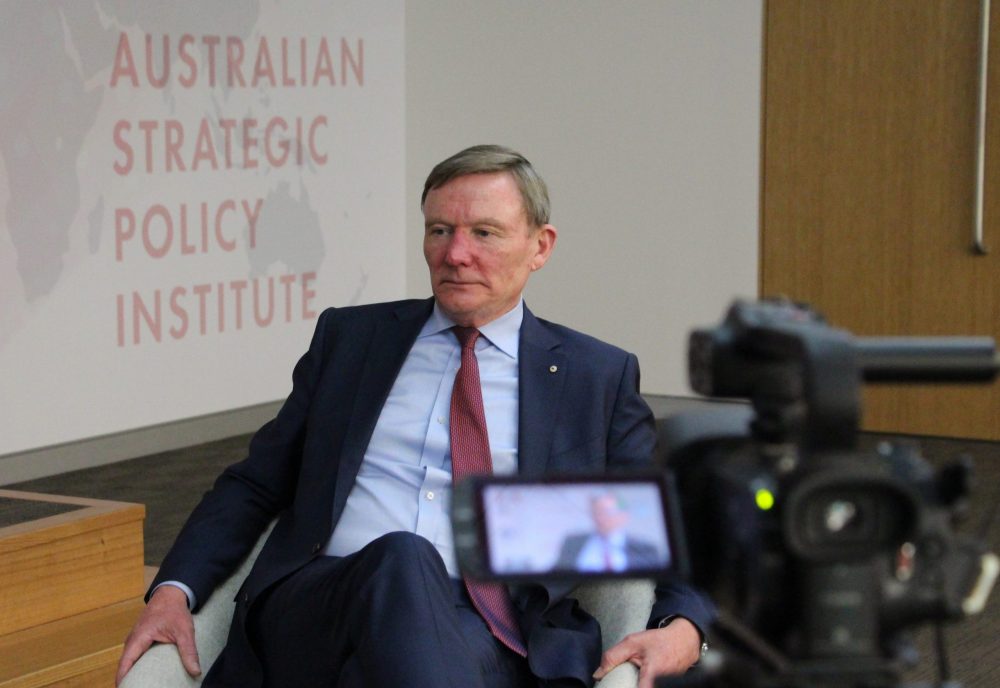 Print This Post
Print This Post- The Strategist - https://www.aspistrategist.org.au -
The Australian Secret Intelligence Service: purposes and principles
Posted By Graeme Dobell on November 1, 2020 @ 13:00

‘Spies cannot be usefully employed without a certain intuitive sagacity. They cannot be properly managed without benevolence and straightforwardness. Without subtle ingenuity of mind, one cannot make certain of the truth of their reports. Be subtle! Be subtle! And use your spies for every kind of business.’
— Sun Tzu, The art of war, circa 500 BC
Humans will develop trusting relationships and share secrets—they are willing to build a relationship with a service like ours that cultivates, recruits and validates them. There is a relationship that builds. So when you’re trying to understand senior leaders around the region, or further afield, you’re trying to understand the way they’re thinking, their vision for their country, the risks that they see, and the opportunities they see. Those sorts of conversations are normally held in inner circles, and are between humans, and will always be that way.
I would argue that if you’re in a closed society then there is a stronger possibility that you will be concerned about the direction of the country. If people become leaders of everything in their country, if power is concentrated and centralised, then ultimately you become responsible for everything. And you actually become responsible for the way in which your citizens perceive leadership.
So there is an interesting medium- to long-term dimension to this; as a general rule, closed societies run the risk of a greater number of individuals willing to betray the secrets of their country, because they are not happy, they don’t get a voice. We get a voice every three years, we go down to the local school and we vote. But there are a lot of people that don’t. That is one motivation.
The grey zone really is increasingly being used in the lexicon to reflect the fact that we are in this environment of coercion short of conflict. And that is keenly felt inside the intelligence community, whether it is on the defence or the offence. The other comment I would make is that it’s often a term that the military is using, and I think our military and the other militaries around the world are thinking very, very carefully around coercion short of conflict and the role of the military.
If you looked at our internal correspondence, literally all of our activities are written up in great detail—and when I say great detail, I am not only talking about the nature of the meeting with an agent and the conversation or intelligence or information which is passed, but considerable detail about body language, personal life, all of that is recorded. Because we always want to validate, to check, that all the information we are getting is accurate. That the agents themselves are at a point in their life where they are not getting distracted or not being coerced—there is a lot of things that we are checking on as we build a relationship with our agents. Everything is very well written down inside the service.
Article printed from The Strategist: https://www.aspistrategist.org.au
URL to article: https://www.aspistrategist.org.au/the-australian-secret-intelligence-service-purposes-and-principles/
[1] The art of war: https://suntzusaid.com/book/13
[2] interviews: https://www.aspi.org.au/report/asis-interviews
[3] ‘grey zone’: https://www.aspistrategist.org.au/australias-strategic-update-by-the-numbers/
[4] 2020 strategic update: https://www.defence.gov.au/strategicupdate-2020/
[5] Intelligence Services Act 2001: https://www.legislation.gov.au/Details/C2020C00300
[6] Parliamentary Joint Committee on Intelligence and Security: https://www.aph.gov.au/parliamentary_business/committees/joint/intelligence_and_security
[7] Inspector-General of Intelligence and Security: https://www.igis.gov.au/